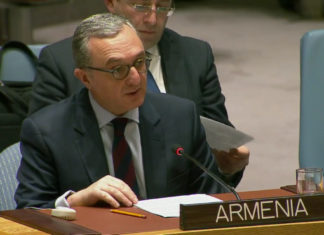By Daphne Abeel
Special to the Mirror–Spectator
CAMBRIDGE, Mass. — On Tuesday, May 25, the Carr Center for Human Rights at Harvard’s Kennedy School hosted a forum on the future of democracy in the Republic of Turkey, which often turned emotional.
Titled “Building or Undermining the Rule of Law: Ergenekon, Sledgehammer and the Future of Turkish Democracy,” the three-person panel featured, Dani Rodrik, a prominent Turkish economist and current professor of international political economy at the Kennedy School, his wife, Pinar Dögan, a lecturer in public policy also at the Kennedy School, and Gerald Knaus, founding chair of the European Stability Initiative (ESI), who has made his home in Istanbul since 2005.
Dögan is the daughter of Çetin Dögan, a retired four-star general, arrested in Turkey with several others this past February and indicted for his alleged part in the Ergenekon, or “deep state” plot to overthrow Turkey’s government, currently led by Prime Minister Recep Tayyip Erdogan, a member of the AKP (Justice and Development Party), which enjoys strong Islamic roots. Dögan is only one of a number of generals and other military figures who have been arrested in Turkey in recent years and charged with plotting a military coup to ensure the secular character of the Turkish state, as mandated by Kemal Ataturk, founder of the Republic of Turkey. According to an article by Rodrik and Dögan published in The New Republic (“Turkey’s Other Dirty War,” 5/24/10), the arrests and indictments “have ensnared hundreds of current and retired military officers, journalists, academics and lawyers — as well as a chief prosecutor and even a former mayor of Istanbul. Many are being kept in jail for months pending trial. While some of the trials have started, none has been concluded and there has
yet to be a single conviction.”
Not surprisingly, Rodrik and Dögan mounted a strong, and, at times, emotional defense of General Dögan, asserting that there is “a pattern” to the cases brought against various military officials and others.
Stated Rodrik, “They are initiated by anonymous informants. The police get letters describing the suspects. some even bear the serial numbers of the suspects’ computers…and the letters will point to a site where ammunitions are buried, supposedly for the purpose of bombings and assassination attempts.”









